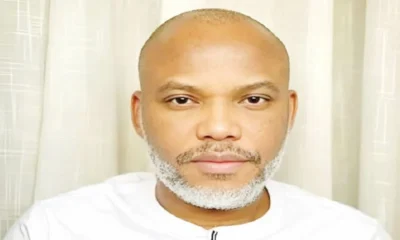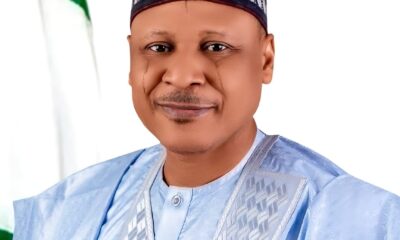Politics
Can the President Suspend a Governor? What’s the Nigerian Constitution
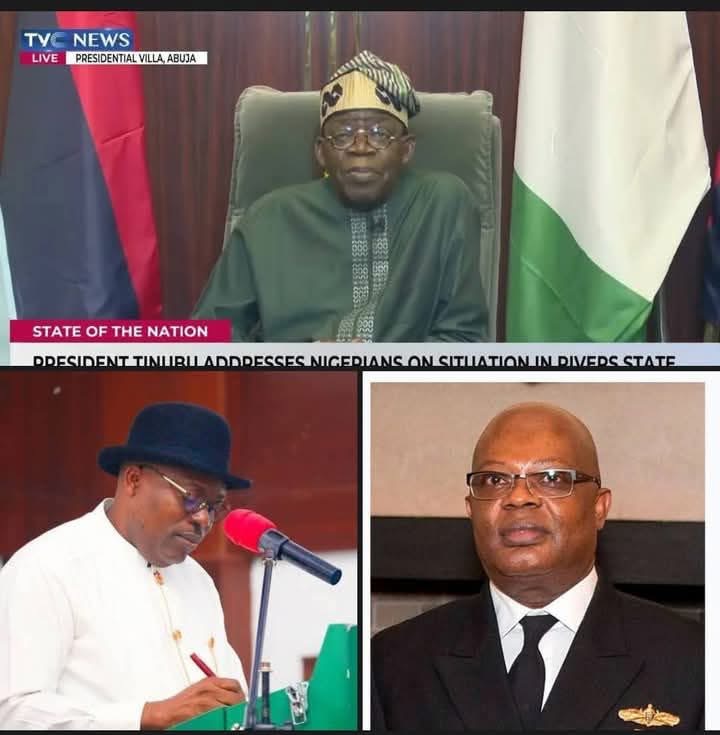
Many Nigerians often wonder: Can the President suspend an elected governor? The short answer is no. The 1999 Constitution of Nigeria (as amended) does not give the President the power to suspend or remove a governor, no matter the situation. However, the President does have the power to declare a state of emergency in a state, but that doesn’t mean the governor automatically loses office.
What Powers Does the President Have?
Under Section 305 of the 1999 Constitution, the President can declare a state of emergency in a state, but only under specific conditions. These include:
If Nigeria is at war
If there is a breakdown of law and order that threatens national security
If a natural disaster or public danger occurs
If a serious public health crisis (like a pandemic) happens
If the state governor formally requests it, explaining why normal governance cannot continue
If the President believes the situation is serious enough to require emergency powers
Even when a state of emergency is declared, it must be approved by the National Assembly within:
Two days (if they are in session)
Ten days (if they are not in session)
If approved, the state of emergency lasts for six months and can be extended if necessary.
Can the President Remove a Governor?
No. The Nigerian Constitution does not give the President the power to remove or suspend a governor, even during a state of emergency.
Section 180(1) of the Constitution states that a governor can only leave office through resignation, death, permanent incapacity, or impeachment.
Section 188 clearly says that only the State House of Assembly can remove a governor through an impeachment process.
So, no matter how bad things get in a state, the President cannot just wake up and remove the governor.
What About Past Cases Where Governors Were Suspended?
Even though the law is clear, some past presidents have removed governors under a state of emergency, sparking legal and political debates.
1. Plateau State (2004) – Governor Joshua Dariye
What happened? Due to ethnic and religious violence, Obasanjo declared a state of emergency, suspended Governor Dariye, and appointed a military administrator.
Why was it controversial? The Constitution does not allow a president to suspend a governor. After six months, Dariye was reinstated.
2. Ekiti State (2006) – Governor Ayo Fayose
President: Olusegun Obasanjo
What happened? Fayose was accused of corruption. The state assembly’s impeachment process was chaotic, so Obasanjo declared a state of emergency, suspended Fayose, and installed a military administrator.
Why was it controversial? Many saw it as an abuse of power.
3. Borno, Adamawa, and Yobe States (2013) – Boko Haram Insurgency
President: Goodluck Jonathan
What happened? Boko Haram attacks were escalating, so Jonathan declared a state of emergency in these states.
What was different? Unlike Obasanjo, Jonathan did not remove the governors—he only deployed military forces to restore order.
Jonathan’s approach was seen as more constitutionally compliant, while Obasanjo’s actions remain highly controversial.
The Bottom Line
The President can declare a state of emergency under Section 305 of the Constitution.
The President cannot suspend or remove a governor—only the State House of Assembly can do that (Sections 180 and 188).
While past leaders have tried to push the limits of their power, the law remains clear: an elected governor can only be removed by due process, not by presidential order.
Politics
OHANAEZE YOUTH COUNCIL REPLIES NORTHERN ELDERS FORUM: YES, IGBO YOUTHS WANT BIAFRA
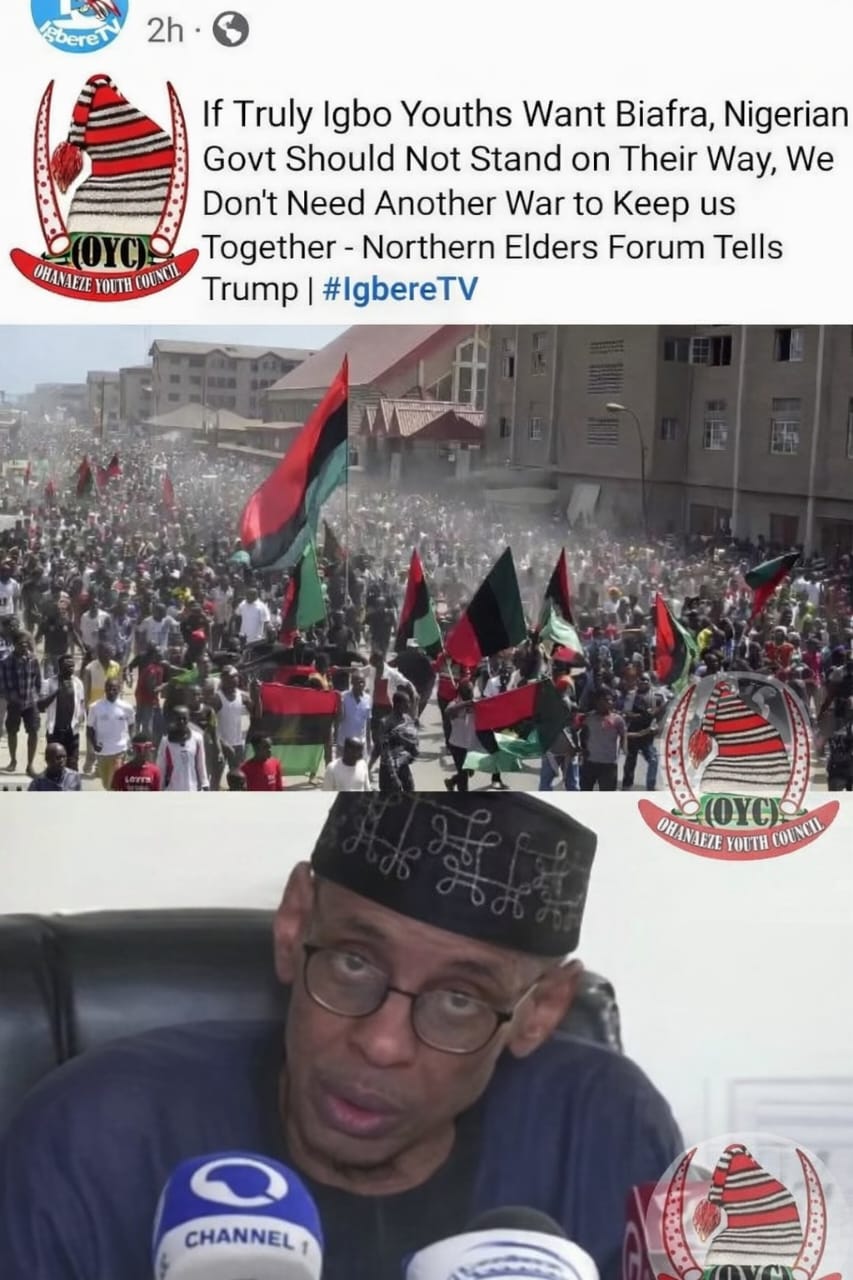
By Comrade Igboayaka O. Igboayaka
President OHANEZE YOUTH COUNCIL
The Ohanaeze Youth Council (OYC) has formally replied to the recent statement credited to the Northern Elders Forum, wherein they suggested that if Igbo youths truly desire Biafra, the Nigerian government should not stand in their way.
While we acknowledge this rare moment of honesty, OYC states clearly and unequivocally:-Yes — Igbo youths want Biafra. And this desire is not born out of hatred, but out of decades of injustice, exclusion, and systemic oppression.
The agitation for Biafra is the direct consequence of Nigeria’s persistent failure to build an equitable and inclusive federation.
WHY IGBO YOUTHS ARE DEMANDING BIAFRA
Our position is anchored on undeniable realities:-
*1. Political Differences:-Nigeria’s political structure has consistently marginalized the Southeast. Since the return to democracy in 1999, the Igbo nation has been deliberately excluded from key leadership positions, particularly the Presidency and critical security offices. Federal appointments, resource control, and political representation remain grossly imbalanced against Ndigbo.The so-called federal system operates more like a unitary arrangement where certain regions dominate while others are reduced to spectators.*
*2. Social Differences:-Social integration in Nigeria has collapsed. Igbo citizens face profiling, harassment, and selective enforcement of laws across different parts of the country. Peaceful protests in Igboland are met with military brutality, while violent extremism elsewhere often receives negotiation and amnesty.This double standard has deepened alienation among Igbo youths.*
*3. Cultural Differences:-Our language, traditions, and values are neither protected nor promoted within the Nigerian framework. Instead, Igbo culture is routinely undermined and treated as inferior. A nation that fails to respect the cultural identity of its people cannot claim unity.*
*4. Religious Differences:-Religious intolerance has become normalized. Christian communities in the Southeast feel increasingly threatened in a country where religious bias influences policy, security response, and governance. The absence of genuine religious neutrality further widens the divide.*
*5. Ethnic Hate Against Ndigbo:- Anti-Igbo rhetoric has been openly displayed in national discourse. From threats of expulsion to hate speeches and coordinated attacks, Ndigbo have become targets within their own country. Properties belonging to Igbos are often destroyed during crises, with little or no compensation or justice.This persistent hostility sends a clear message;we are not wanted.*
*6. Systemic Marginalization:- From abandoned federal roads to exclusion from major infrastructure projects, from poor seaport development to economic strangulation, the Southeast remains deliberately underdeveloped. Igbo youths graduate into unemployment, poverty, and despair while watching other regions benefit disproportionately from national resources.*
*This is not accidental. It is structural.*
*OUR MESSAGE IS SIMPLE*
*Igbo youths are not asking for war.*
*Igbo youths are asking for dignity.*
*Igbo youths are asking for freedom.*
*Igbo youths are asking for self-determination.*
*If Nigeria cannot guarantee justice, equity, and equal opportunity for all, then the call for Biafra becomes not just legitimate — but inevitable.*
*To the Northern Elders Forum: we appreciate your acknowledgment. Now let the Nigerian state also have the courage to respect the democratic will of a people.*
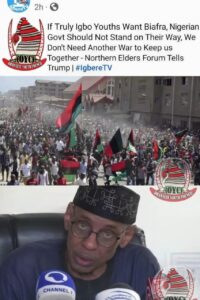
*You cannot force unity where there is no justice.*
*Powered by OHANAEZE YOUTH COUNCIL (OYC)*
Politics
FULL LIST: Nigeria now has 21 registered political parties
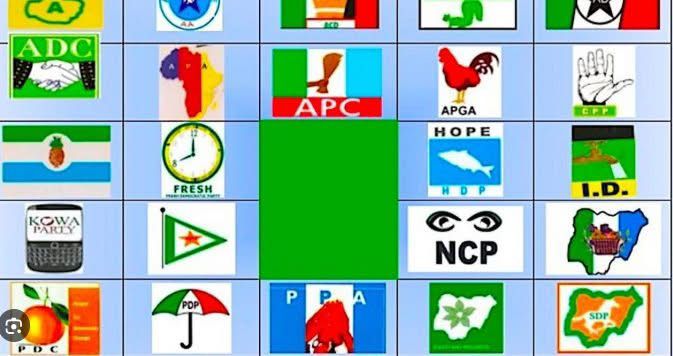
The Independent National Electoral Commission (INEC) has approved two new political parties ahead of the 2027 general elections, raising the total number of registered parties in Nigeria to 21.
INEC Chairman, Prof. Joash Amupitan (SAN), announced the approval of the Democratic Leadership Alliance (DLA) and the Nigeria Democratic Congress (NDC) in Abuja on Thursday. While DLA met all statutory requirements, NDC was registered following a Federal High Court order.
Full list of registered political parties in Nigeria:
All Progressives Congress (APC)
Peoples Democratic Party (PDP)
Accord (A)
Social Democratic Party (SDP)
Labour Party (LP)
All Progressives Grand Alliance (APGA)
African Democratic Congress (ADC)
Boot Party (BP)
Action Democratic Party (ADP)
African Action Congress (AAC)
Action Alliance (AA)
National Rescue Movement (NRM)
Zenith Labour Party (ZLP)
New Nigeria Peoples Party (NNPP)
Allied Peoples Movement (APM)
Peoples Redemption Party (PRP)
Action Peoples Party (APP)
Young Progressives Party (YPP)
Youth Party (YP)
Democratic Leadership Alliance (DLA) – new
Nigeria Democratic Congress (NDC) – new
INEC said the new parties were registered as part of efforts to deepen democratic participation and broaden political choices for Nigerians.
Politics
Nnamdi Kanu appeals conviction, faults terrorism trial
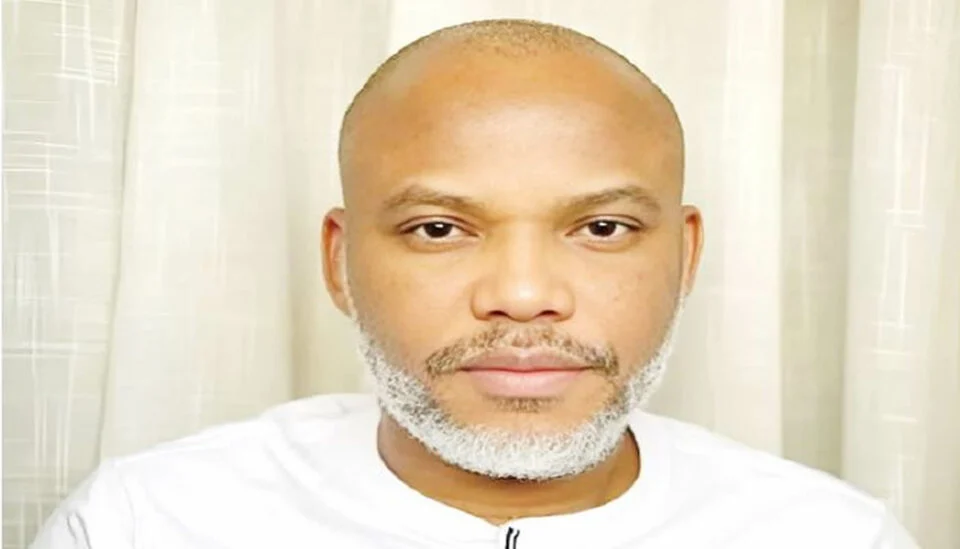
The detained leader of the Indigenous People of Biafra, Nnamdi Kanu, has filed a notice of appeal challenging his conviction and multiple sentences imposed by the Federal High Court in Abuja, insisting that the trial was riddled with fundamental legal errors and amounted to a miscarriage of justice.
In the notice of appeal dated February 4, 2026, Kanu said he was appealing against his conviction and sentences on seven counts, including terrorism-related offences, for which he received five life sentences and additional prison terms after being found guilty on November 20, 2025.
“I, Nnamdi Kanu, the Appellant, having been convicted and sentenced… do hereby give notice of appeal against my conviction,” the document stated.
Kanu was convicted for offences including “committing an act preparatory to or in furtherance of an act of terrorism,” “making a broadcast… with intent to intimidate the population,” and “being the leader and member of the Indigenous People of Biafra (IPOB), a proscribed organisation in Nigeria,” among others.
Justice James Omotosho of the Federal High Court, Abuja, delivered the judgment on November 20, 2025, sentencing Kanu to five life terms for terrorism-related offences, 20 years’ imprisonment for being the leader of the proscribed IPOB, and five years’ imprisonment with no option of fine for importing a radio transmitter without a licence.
In his grounds of appeal, the IPOB leader accused the trial court of failing to resolve what he described as a “foundational disruption of the original trial process” following the 2017 military operation at his Afara-Ukwu residence.
“The learned trial judge erred in law by failing to resolve the procedural and competence consequences of the foundational disruption of the original trial process in September 2017,” Kanu argued.
He also contended that the court proceeded to trial and judgment while his preliminary objection challenging the competence of the proceedings remained unresolved.
“The learned trial judge did not hear or determine the objection,” the appeal document stated, adding that judgment was delivered “while the objection remained pending and undetermined.”
Kanu further faulted the court for delivering judgment while his bail application was still pending, arguing that this affected the fairness of the trial process.
He also claimed that the trial court convicted him under a law that had already been repealed, stating that “the learned trial judge erred in law by convicting and sentencing the Appellant under the Terrorism Prevention (Amendment) Act, 2013, notwithstanding its repeal by the Terrorism (Prevention and Prohibition) Act, 2022, prior to judgment.”
Kanu further argued that he was subjected to double jeopardy, contrary to Section 36(9) of the 1999 Constitution, after being retried on facts he said had earlier been nullified by the Court of Appeal.
He also complained that he was denied fair hearing, claiming that he was not allowed to file or present a final written address before judgment was delivered.
Among the reliefs sought, Kanu asked the Court of Appeal to allow the appeal, quash his conviction and sentences, and “discharge and acquit the Appellant in respect of all the counts.”
He also informed the appellate court of his desire to be present at the hearing of the appeal, stating, “I want to be present at the hearing of the appeal because I may be conducting the appeal in person.”
Kanu is currently being held at a correctional facility in Sokoto State, after his application to be transferred to a different facility in either Niger or Nasarawa State was denied.
-
Business1 year ago
US court acquits Air Peace boss, slams Mayfield $4000 fine
-

 Trending1 year ago
Trending1 year agoNYA demands release of ‘abducted’ Imo chairman, preaches good governance
-

 Politics1 year ago
Politics1 year agoMexico’s new president causes concern just weeks before the US elections
-

 Politics1 year ago
Politics1 year agoPutin invites 20 world leaders
-

 Politics1 year ago
Politics1 year agoRussia bans imports of agro-products from Kazakhstan after refusal to join BRICS
-
Entertainment1 year ago
Bobrisky falls ill in police custody, rushed to hospital
-
Entertainment1 year ago
Bobrisky transferred from Immigration to FCID, spends night behind bars
-
Education1 year ago
GOVERNOR FUBARA APPOINTS COUNCIL MEMBERS FOR KEN SARO-WIWA POLYTECHNIC BORI









